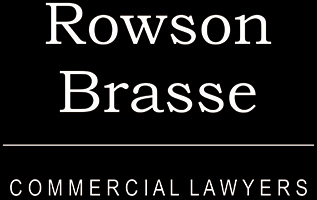The Mental Capacity of a Will Maker
The issue of the testamentary capacity of the will maker usually arises:
- when there is a notation of a mental illness on the death certificate; or
- when there is a challenge to the will by way of a caveat preventing the grant of probate; or
- by way of an application for the revocation of a grant of probate.
The prerequisite test for testamentary capacity was explained in an old English case of Banks v Goodfellow back in 1870. The prerequisite test can be broken down into the positive aspects of capacity and the negative aspects of capacity.
The Positives
- The will maker has capacity to understand the nature of the act of making the will and the effects of the will;
- The will maker understands the extent of the property/assets which are the subject of the will; and
- The will maker has capacity to comprehend and or understand the moral claims of potential beneficiaries.
The Negatives
- The will maker does not suffer from any disorder of the mind that can poison his affections, pervert his sense of right or prevent the exercise of his natural faculties; and
- The will maker does not suffer from insane delusion which will influence the disposition of his property/assets, which if he was in a sound mind he would not have made.
A disorder of the mind does not necessarily mean that the will maker has no testamentary capacity. For example, a diagnosis of dementia does not necessarily indicate a lack of testamentary capacity, especially if the will maker can satisfy all the ‘positives’. Whether the ‘positives’ were present at the time the will was made would depend on proper medical evidence. If in doubt, a doctor’s medical certificate should be obtained before the will is executed.
The courts have made it clear that a false belief in itself is not delusion. For a false belief to be a delusion going towards testamentary capacity, the false belief must be such that it prevents the will maker from exercising his or her natural faculties in comprehending and appreciating the claims to which he or she ought to give effect. The negatives can be further broken down as follows:
- A material mistaken belief in making a will is in itself insufficient to demonstrate absence of testamentary capacity;
- For a mistaken belief to be a delusion there must be a high degree of irrationality in the belief. The will maker’s devotion to the mistaken belief can suggest a mental disorder or deficiency preventing the will maker from understanding and appreciating the claims to which he or she ought to give effect in her will.
- There must be evidence that the will maker is wedded to the mistaken belief irrespective of its truth.
With the issue of capacity there is also the issue of knowledge and approval of the contents of a will. On this issue, the courts have said:
- If capacity is established or if it is not an issue and the will has been duly executed, there will be an assumption that the will maker knew of and assented to the contents of the will.
- The assumption will not arise if there are suspicious circumstances, in which case the court will have to be satisfied that the will maker knew and approved of the contents of the will.
- A suspicious circumstance would be where a party benefiting under the will wrote or prepared the will, especially if the benefit is a substantial one.
Reference: Banks v Goodfellow (1870) LR QB 5 Carr v Homersham [2018] NSWCA 65 and Riatman v Ivey [2017] VSC 322
For further information, please contact Jean Francois Brasse at Rowson Brasse & Co

0 comments